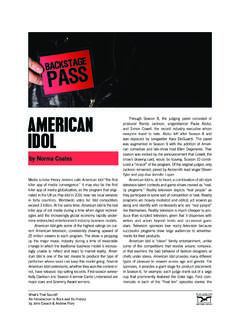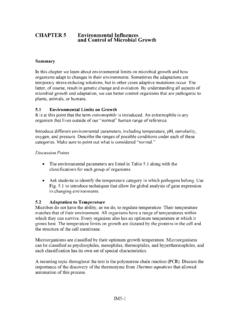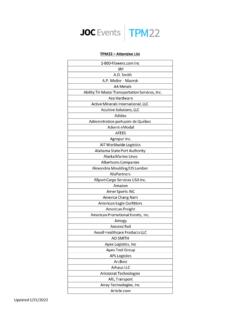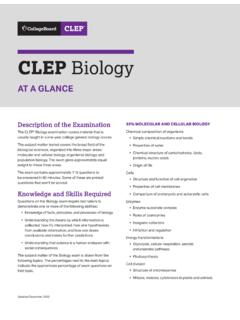Transcription of Melissa Hicks, “The High Price of Butter”
1 In my house we have butter and margarine. The butter is for cooking. The margarine is for macaroni and cheese. I swear that it s the butter that makes everything taste so good. My favorite foods that remind me of my mother and my own childhood. In the grocery store aisle, I stand under the harsh white lights of the dairy case, margarine in one hand and butter in the other. I weigh them in my hand and compare the Price ; I weigh them in my mind, thinking of the high cost of butter . No matter how long I stand and weigh, I always put the butter in my cart. I remember the times when I was a girl the taste of sweet, fresh butter melting on my tongue. I remember the work it took, and I know the Price is more than my fourteenth birthday, I got a cow. I did not ask for a cow. I had very clearly asked for a horse. While every girl-child wants a horse, I felt that I had earned mine.
2 I had worked at a farm down the road for the last two summers. I rode my bike to the stables. I would shovel the manure, feed the horses, ride for hours, and then pedal home exhausted. I knew how to take care of a horse. The life my family had worked and sweated for, clearing our own little spot in the Maine woods, was as well suited to horse-raising as any of our other pursuits. Even more, my father had dropped hints here and there. While he would not definitively say it was a horse, he did say I could ride it. The fact was, I didn t know beans about had a small farm in rural Maine. We cleared the land to put our trailer there. We hauled the brush and burned it. We pulled stumps, sometimes with the help of a tractor or a friendly neighbor with access to dynamite. We had a well and a septic tank dug. Onto the trailer we built a two-room addition with clean lumber and tongue-and-groove walls.
3 My father s handmade bookshelves separated it into halves, one half being my parents bedroom. A door led into the trailer, where my sisters and I had to apply to the town office to put up new cedar poles for the power lines to our lot. On our two acres we raised chickens, rabbits, and sometimes a pig. We had room for so many animals that Introduction uses the taste of butter to link present and past Describes the general setting where the remembered events took placeMelissa Hicks, The high Price of butter turned into dinner, but in all the years I d begged, we had never had room for a the hill from our house sat our barn. Like everything else we d worked so hard on during the summer leading up to my fourteenth birthday, it was a sure sign of horses to come. The barn had one stall. It was built so that the back door opened into the rabbits shed, and as soon as you entered, you could see their red eyes through the black doorway in the rear.
4 It smelled like clean hay and fresh ammonia, and when the days were cold (as they were in September), the smells seemed to bite my cheeks with the barn was built around a huge cedar tree with white-ringed wounds where my father s chainsaw had slid through thick branches. Nailed to its furry brown bark were sections of two-by-fours, rising parallel to the loft. Its roots gripped the floor tightly, still growing. One side of the square hole that framed the loft entrance was nailed to the tree with thick spikes. We avoided picturing the consequences of its either growing or dying, but it was sure to do both main door into the barn was aligned diagonally with the door to the rabbits shed on the opposite wall. To the right was the stall, and to the left a large open window of the kind that horses stick their heads through. On the floor below it was a massive water tank, more than bathtub size; above it was a recently installed spigot.
5 In a corner were a stack of green poles and pegs, and loops of wire to install an electric fence. These were all signs of impending cow actually arrived about a week before my birthday. She was a small, brown cow a Guernsey. She was a heifer that would soon birth a calf, and we would get to milk her. My father had gotten her from a farmers co-operative program. After the calf was weaned, we would donate it back to them. We would have butter and cheese and fresh milk from my had just started. Despite the farm, my parents both had day jobs, like everyone else I knew. This was making ends meet. It was another reason to get up early in the morning, and another Specific details like this capture the particulars of life on Hicks s family farm Focus is on the cow, an important part of making butter Making ends meet sums up the economic scene that Hicks is describingchore to be done when I got home.
6 The most bitter part though, was that the heifer was still not a is not the butter I knew as a girl. I hear the crinkle as I pull it from its plastic shopping bag and place it, still in its perfect slick cardboard packaging, on the counter to soften. I bang through the kitchen, leaving a trail of open cabinets in my wake as I thrust goodies onto shelves. I pull out my cutting board before I twirl around to twist the knobs on my stove. I set my oven to 425 and bend low to grab my casserole dish from under the sink. I plunk it on the cutting board before whirling again to dig through the cupboards for think to myself, it s a shame to use canned filling with the real butter , but even my mother couldn t do scratch every time. The oven is not yet heated, and I am thinking of my cobbler. I pull out a mixing bowl and measuring cup. I think of my mother and how she prepared everything in advance so she could just add and mix when the right time came.
7 I break the seal on the butter s box, setting two sticks inside the blue Pyrex dish. The remaining two are sent to the named her Francis Mary. It suited her. She had large brown eyes that always seemed sadly pensive, with soft cream-colored hair rimming them. The fur around her eyes ended abruptly in the deep reddish-brown of her fur. For spite and for pretend, I decided I would ride her. I sat on her after milking-time one day. My sneakers bumped the rough wood planks on either side of the stall when she shifted. Our breaths blew mightily, visibly twin streams in autumn air. The milk steamed quietly in its bucket. On a shelf sat my tape player. I sang Faith with George Michael and whispered encouragement to Francis Mary while I tugged on the rope I d tied to her halter. When the tape ended, I picked up the milk and headed up to our back steps crossed over a muddy trench.
8 Our main trailer sat up on a little ledge. The steps were wooden and rickety, with sticky, abrasive tar paper stapled to the wooden planks; the handrails were sturdy two-by-fours and there were no fronts or sides (fig. 1). Descriptive details of the present are just as specific as those pertaining to the past All-important cow gets a name and a full physical description These physical details show harsher aspects of life on the farmBetween the holes, you saw the muddy gully, unless you saw cold white snow and muddy barn clothes meant using these steps. We left our dirty boots outside the door. Here were windows of plastic sheeting,empty seed pots and trays, old watering dishes, and big plastic outdoor toys, outgrown and overused, left dirty in various corners. It was a greenhouse in the spring, and a den for hairy spiders all year dinner, usually twilight sometimes in the dark I d lift heavy buckets of milk up the stairs into the warmth of the kitchen.
9 A wooden sign says Willkommen above the stove. I step outside to take off my rubber-toed boots; jacket and gloves were hung in the barn. My cheeks pink, I step back inside in wool socks and hang my hat on the 1. Me and my sister Angela (right) in an old photograph taken at our home in Maine, where I learned to make butter from my parents and received a cow as a present on my fourteenth father is standing by the sink. He takes the aluminum buckets and pours them through a large metal sieve into precooled pitchers, waiting in the sink. In the clear plastic we can see the cream as it cools and separates from the milk. My father covers the pitchers and puts them in the fridge. My mother watches the news as I start my homework. My sisters disappear, whispering about Barbies and coloring books. I draw pictures of princesses and half-heartedly pretend to do my algebra.
10 If we weren t making butter , I could disappear into my room. I could wrap myself in jackets and blankets, and put on thick gloves. I could pull curls from the kitchen phone-cord and run it under the back door, huddling and whispering to girlfriends, or worse even, to my mother, I don t need a recipe for anything. But for cobbler, one must measure. I pull the waxy paper off the butter , letting the sticks fall whole into my pan. Sturdy long rectangles of solidified cream bounce sullenly as they hit. They leave a mark as they tumble, a visible trail of clean grease and flavor. These go into the oven. I melt them whole and let them bubble and simmer until the butter turns brown. No matter how long you cook it, margarine will never brown, my mother said while preparing some supper or other. That s how you know the difference. It seemed awfully silly to me at the time.







